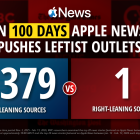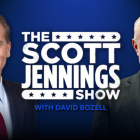
In a sternly-worded letter sent to the House Energy and Commerce Committee and Rep. Ro Khanna (D-PA), the Media Research Center-led Free Speech Alliance called out Chair Cathy McMorris Rodgers (R-WA) and Ranking Member Frank Pallone (D-NJ), asking for “reform” of Section 230 of the Communications Decency Act. The alliance stated outright in the letter that the “Legislative Proposal to Sunset Section 230 of the Communications Decency Act” bill “is insufficient to address the underlying issues” surrounding Big Tech.
The proposed legislation does not address any specifics or intricacies surrounding Big Tech censorship or Big Tech-government collusion to undermine Americans’ free speech online. Rather, the “Section 230 Sunset Act” simply provides a “sunset for section 230 of the Communications Act of 1934” to take effect “after December 31, 2025.”
Members of the Free Speech Alliance detailed what Congress must do, rather than simply sunsetting Section 230: “To restore free speech rights while protecting platforms from frivolous lawsuits, Congress must amend Section 230 to end viewpoint discrimination in a way that also protects smaller platforms that are vulnerable to unscrupulous lawyers.”
The Free Speech Alliance pressed that, “fortunately,” bipartisanship is on the table for such an amendment but that “reform must focus on two key objectives: (1) preserving free speech rights because a healthy and functional democracy cannot survive otherwise, and (2) promoting the understanding that censorship is anathema to a free society.”
The full Free Speech Alliance letter can be found here.
The lack of apparent concern for Big Tech censorship is surprising considering the rank amount of documented censorship MRC Free Speech America has compiled in its exclusive CensorTrack database to date. Currently MRC has recorded over 6,800 documented cases of censorship by Big Tech companies, predominantly targeted against conservatives.
Twitter (now rebranded X following Elon Musk's purchase of the platform) makes up the preponderance of the censorship data found in CensorTrack with 4,010 documented cases (58%); Facebook is second with 1,350 documented cases (20%); YouTube is third with 508 documented cases (7%); Instagram is fourth with 279 documented cases (4%) and Google is fifth with 184 documented cases (3%).
Conservatives are under attack. Contact your representatives and demand that Big Tech be held to account to mirror the First Amendment while providing transparency, clarity on so-called “hate speech” and equal footing for conservatives. If you have been censored, contact us using MRC Free Speech America’s contact form, and help us hold Big Tech accountable.









